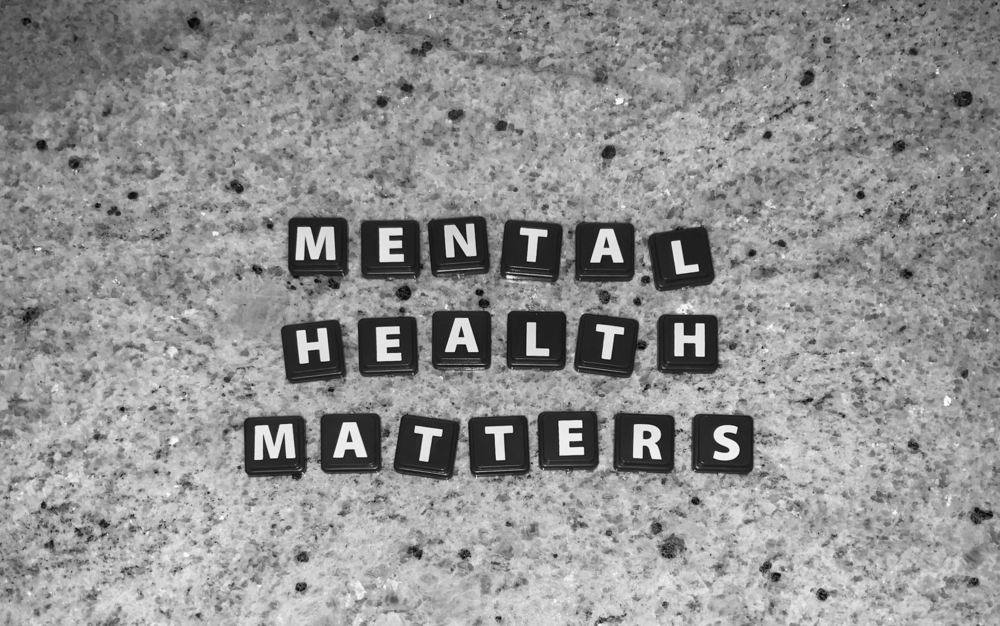Practical Steps for Mental Health Wellness
and Problem Prevention

The importance of mental wellbeing has increased in the fast-paced world of today. Our mental health might suffer from the stresses of everyday living as well as from social expectations, personal struggles, and other factors.
Nonetheless, people may protect their mental health and advance general wellness by implementing doable tactics and preventative measures. This post will discuss some doable strategies to improve mental health and stop any issues before they become more serious.
Prioritize Self-Care
Taking deliberate time to support your physical, emotional, and mental well-being is known as self-care. It involves a variety of practices, such as obtaining adequate sleep, eating a balanced diet, and relaxing with hobbies and pastimes.
Self-care can lower stress levels, elevate mood, and improve one's general quality of life, according to Healthline. Making self-care a priority is an investment in your resilience and capacity to handle life's obstacles.
Seek Help from Qualified Experts
Seeking expert assistance is essential when dealing with mental health issues. Psychiatrists, psychologists, and therapists complete rigorous training programs in order to offer evidence-based treatments that are customized for each patient.
Therapy may provide an insightful understanding of thinking processes and behavior patterns, enabling people to transform their lives for the better. In addition, a psychiatrist's medication management can be a useful part of treatment for specific mental health issues.
Another essential component of the mental health care team is the psychiatric mental health nurse practitioner (PMHNP). Psychiatric-mental health nurses, or PMHNPs, are advanced practice registered nurses (APRNs) with specific training and education in the field. As per healthecareers.com, there are a total of 300,000 nurse practitioners in the United States. About 1.8% of these are PMHNPs.
With a focus on PMHNP, they usually possess a Doctor of Nursing Practice (DNP) or Master of Science in Nursing (MSN) degree. The DNP-PMHNP program provides advanced clinical skills to nurses, according to Baylor University. This covers mental health issues across the lifetime, including examination, diagnosis, and therapy.
Through psych DNP programs, PMHNPs are qualified to provide comprehensive mental health care, including therapy, medication management, and preventive services. By collaborating with other healthcare providers and utilizing their expertise, PMHNPs play a vital role in delivering holistic care to individuals.
Foster Strong Connections
Maintaining and enhancing mental health requires having strong social relationships. Research indicates that those with robust social networks are better equipped to handle stress and adversity.
Mutual respect, empathy, and trust are the foundations of relationships that may provide people with a sense of belonging and emotional support. Building meaningful relationships—whether through in-person or virtual interactions—is crucial for general well-being.
Practice Stress Management
As per Verywell Mind, effective stress-reduction methods can lessen the negative effects of ongoing stress on mental health. Exercises, including deep breathing and other mindfulness-based practices, promote relaxation and reduce anxiety.
Regular physical exercise causes the release of endorphins, which are organic mood enhancers. Feelings of overwhelm and anxiety can also be reduced by prioritizing work, setting realistic objectives, and using time management techniques.
Educate Yourself and Others
Increasing mental health literacy is key to fostering understanding and reducing the stigma surrounding mental illness. Learning about common mental health conditions, such as depression and anxiety, can help individuals recognize symptoms and seek appropriate support.
Speaking honestly about mental health promotes compassion and understanding, which helps individuals who are dealing with mental health issues by fostering a supportive atmosphere. We can establish a culture that values mental health and well-being by advancing awareness and education.
FAQs
What does self-care mean?
Self-care refers to intentional actions taken to prioritize one's physical, emotional, and mental well-being. It includes recognizing one's own needs and limitations as well as partaking in leisure pursuits that enhance rest, renewal, and general well-being. Examples include exercise, relaxation techniques, hobbies, and social support.
How can stress be managed, and what does it entail?
Stress, which appears as tension in the body, mind, and emotions, is the body's natural response to challenging situations. Stress-reduction techniques that work include asking friends, family, or mental health professionals for support, exercising, setting realistic goals, and practicing mindfulness.
What distinguishes FNP and PMHNP from one another?
A PMHNP, or psychiatric-mental health nurse practitioner, is a specialist in delivering mental health services to people with psychiatric diseases. These services include evaluation, diagnosis, treatment, and medication administration. On the other hand, a family nurse practitioner (FNP) provides primary care services to individuals and families across the lifespan.
In conclusion, by actively incorporating self-care, seeking professional support, managing stress, and promoting mental health literacy, individuals can proactively safeguard their mental well-being. By working together, we can improve our personal resilience and help build a society that is more empathetic and supportive of one another.
By using these techniques, we may identify and efficiently manage mental health issues as well as more easily handle life's obstacles. Let's keep putting mental health first, dismantling obstacles, and fostering an environment that is understanding and supportive of everyone's journey toward mental wellbeing.